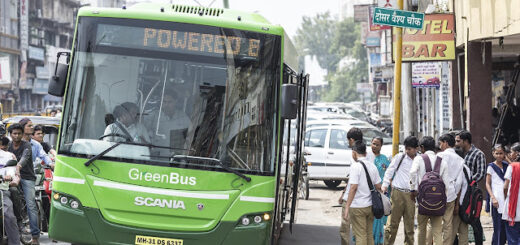Tyre Management For Lower Costs of Trucking
A formal and systematic tyre management program, either by fleets themselves or by outsourced professionals, can help fleets lower their cost-per-kilometre (CPKM) and improve turn-around time.
Nine times out of 10, whenever you see a truck stranded at the side of the highway, it’s most likely for a tyre issue. And for the transporters, the costs of every failures quickly accumulates – roadside repairs and replacements aren’t sophisticated, cargo safety remains elusive, and loss of productivity with every passing hour, especially for large and organised fleets for whom cost-per-kilometre (CPKM) and minimal turnaround time matters a lot. And tyre maintenance is a real science, more than you think. Neither does the infallibility and performance of tyres depends on the product itself, but a multitude of factors like load and route conditions, tyre pressure, right choice of tyre, wheel alignment, quality retreads, etc. determine the life span of tyres. Therefore, drivers thumping the tyre with a jack spanner is never going to match the accuracy of a pressure gauge, or simply mounting a quality tyre ensures maximum performance.
Also Read: Telematics and Fleet Management: Thinking ‘Big’ in Indian Trucking
For any transporter, tyres are an important input, accounting to about 12 to 15 percent of the total expenses. And the issues relating to them are hardly generic either, warranting individualistic analysis of truck needs, operating conditions, and performance evaluation. With the advent of higher speed ratings, radial tyre technology, and multiple retreadability options, the tyre management for any organised fleets today is even more complex. A formal and systematic tyre program with technical know-how and professional training can help maximise the investment for large fleets by leaving fewer shredded casings by extracting the max life out of them. Lowered CPKM and turnaround time, enhanced fuel efficiency and safety, and hazzle-free trucking are the extras you get. Fleets can either conduct their own tyre audit using local-yet-informed professional or experts, or outsource the tyre management fully to professional agencies. Tyre suppliers and dealers are also offering tyre-cum-fleet management programs and schemes.
Ensuring right input at the right time, for long-term gains, is the fundamental principle of tyre management. For instance, the such a program can assist fleets to choose the right tyres in the first place. There are a dozens of truck specs and sizes, so are the tyres. With multiple specs, patterns, load and speed rating, the choices are more complex than they would appear, at times best choices might vary even across the same piece of equipment. A tandem tag axle, for example, might call for a shallower tread and harder compound to offset the scrubbing forces that come with every turn, while drive-axle tippers may require heavier treads to ensure adequate traction. Opting for right spec tyres for every truck ensures their optimum performance and reliability, positively impacting the CPKM.
Also Read: Telematics and Fleet Management: Thinking ‘Big’ in Indian Trucking
Further, preventive maintenance ought to be an another core area of such a tyre program. Once new tyres are fixed, the fleet has to ensure that the preferred options are regularly monitored and properly maintained. For instance, periodic checks of air pressure is likely to enhance tyre life and fuel economy alike, while higher or lower pressures than recommended levels can lead to uneven tyre wear and shorter life. Tyre conditions, at times, may also offer insights that can identify challenges with poor alignment, bent rims, shocks and suspensions, or even driving styles involving heavy braking. “Running mileage is no more the only criteria for tyres, but things like fuel efficiency, multiple retreadability, less punctures and ruptures, higher speed and load capabilities, and enhanced stability and safety are gaining importance with regard to their impacts on CPKM” says Mr. Sanjeev Sharma, General Manager (Fleet Management), Truck Bus Radials, JK Tyre. Lack of awareness and training in tyre monitoring and maintenance takes a heavy toll on the sustainability of the investments made on them, resulting in higher maintenance costs and turn-around time, he adds.
In a nutshell, the rubber that hits the road is more than just a component. They are more like ‘danger mitigators’ on roads, while at the parking lot, they act as ground-level indicators on how well the vehicle is maintained and efficiently used. And a key component to operational efficiency and lower CPKM, perhaps.
Next, would you like to read more on Fleet Management, or Trucks?











